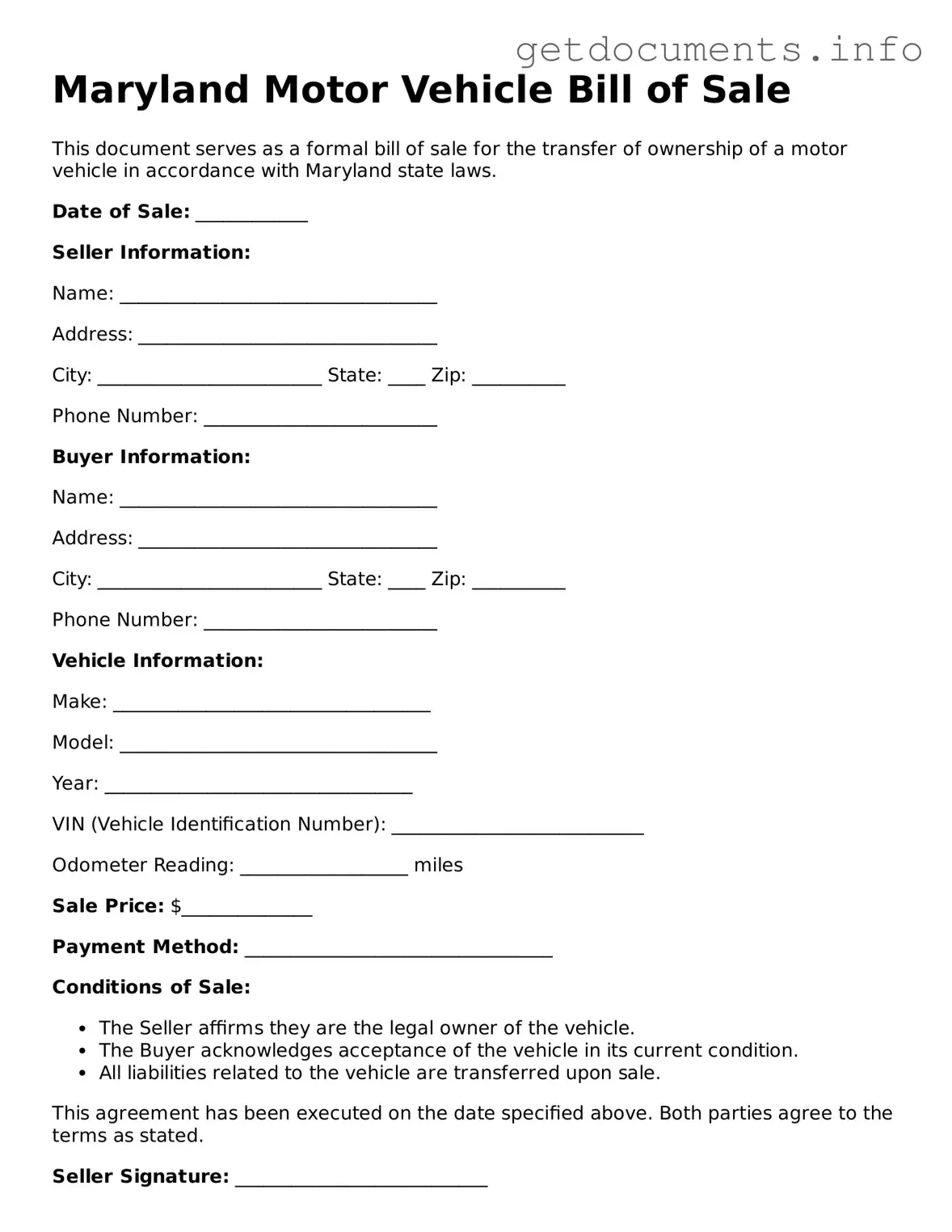Free Motor Vehicle Bill of Sale Template for Maryland
The Maryland Motor Vehicle Bill of Sale form is a crucial document that records the transfer of ownership for a vehicle. This form serves as proof of the transaction between the buyer and seller, detailing essential information about the vehicle and the parties involved. To ensure a smooth transfer process, it is important to fill out the form accurately; you can begin by clicking the button below.
Access Motor Vehicle Bill of Sale Editor

Free Motor Vehicle Bill of Sale Template for Maryland
Access Motor Vehicle Bill of Sale Editor
Got places to be? Complete the form fast
Fill out Motor Vehicle Bill of Sale online and avoid printing or scanning.
Access Motor Vehicle Bill of Sale Editor
or
⇩ PDF File
